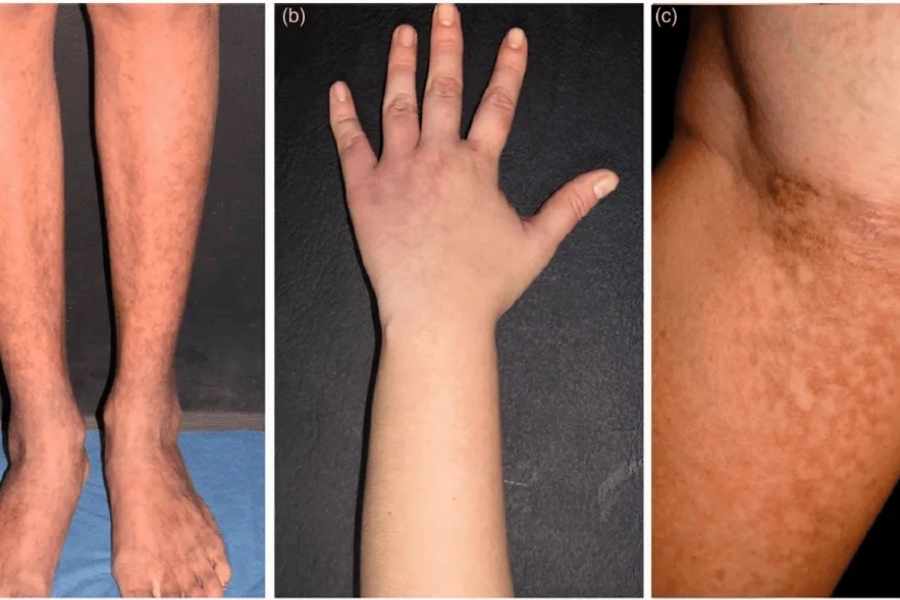Antiphospholipid Syndrome (APS)
Overview of APS Syndrome

Antiphospholipid syndrome also known as Antiphospholipid Antibody Syndrome or APS Syndrome, is a problem with your immune system that can cause blood clots in different parts of your body like your legs, lungs, kidneys, and spleen.
These clots can be dangerous and cause serious issues like heart attacks, strokes, and other problems.
It can also cause miscarriages or stillbirths if you're pregnant.
Unfortunately, there's no cure for this rare condition, but taking medication can help reduce the risk of blood clots and complications.
It's important to be aware of the symptoms and see a doctor or Healthcare Planner right away if you think you have antiphospholipid syndrome.
Symptoms
Indications of antiphospholipid antibody syndrome encompass:
• Deep Vein Thrombosis (DVT): Recognized by pain, swelling, and redness, DVT in the legs may lead to pulmonary embolism if the clots travel to the lungs.
• Recurrent Miscarriages or Stillbirths: Associated complications during pregnancy involve high blood pressure (preeclampsia) and premature delivery.
• Stroke: Even in individuals with no conventional cardiovascular risk factors, antiphospholipid syndrome can result in a stroke, especially in young adults.
• Transient Ischemic Attack (TIA): Resembling a stroke but fleeting, a TIA lasts briefly and causes no lasting damage.
• Rash: Some individuals develop a red rash featuring a lacy, net-like pattern as an additional symptom of Antiphospholipid syndrome or APS syndrome.
Causes & Risks
• Antiphospholipid Syndrome or APS Syndrome results from immune system dysfunction, wherein antibodies intended for virus and bacteria defense spur excessive blood clotting.
• This syndrome may arise from an underlying cause, such as an autoimmune disorder, although it can also occur without a clear trigger.
• Antiphospholipid Antybody syndrome is more prevalent in women than men.
• The risk of developing this syndrome increases in individuals with existing autoimmune conditions, like lupus.
• There appears to be a correlation between antiphospholipid syndrome and other autoimmune disorders.
• Factors contributing to the risk of antiphospholipid antibody syndrome include gender and the presence of other autoimmune conditions.
Test & Diagnosis
• If you've had unexplained blood clots or miscarriages, your healthcare provider may conduct blood tests to check for antiphospholipid syndrome-related antibodies.
• A confirmed diagnosis requires these antibodies to be present in two separate tests, conducted at least 12 weeks apart.
• It's possible to have antiphospholipid antibodies without showing any symptoms.
• The diagnosis of aps syndrome or antiphospholipid syndrome is made when these antibodies cause health problems.
• This underscores the connection between the antibodies and associated health issues.
• Treatment for antiphospholipid antibody syndrome typically involves anticoagulant medications to prevent blood clot formation and minimize the risk of complications.
Treatment
• Initial treatment for blood clots typically involves a combination of heparin and warfarin, with heparin administered via injections and warfarin in pill form.
• Aspirin is also used as a blood thinner in some cases.
• However, blood thinners increase the risk of bleeding, necessitating dosage monitoring through blood tests.
• Additional medications like hydroxychloroquine, rituximab, and statins may be considered for treating antiphospholipid syndrome, pending further research.
• During pregnancy, successful outcomes can be achieved with heparin or heparin combined with aspirin, as warfarin is avoided due to potential fetal effects.
• Treatment strategies for antiphospholipid syndrome often involve a combination of medications tailored to the individual's specific needs and medical history.
Living With APS Syndrome
Living with antiphospholipid syndrome (APS) poses challenges due to potential complications, requiring ongoing management.
APS, an autoimmune disorder causing abnormal blood clotting, demands long-term treatment with anticoagulant medications like warfarin or direct oral anticoagulants (DOACs) to mitigate clotting risks.
Regular monitoring includes blood tests to adjust medication doses. APS escalates risks like deep vein thrombosis, pulmonary embolism, strokes, heart attacks, and pregnancy-related issues.
Lifestyle modifications, prenatal care, and emotional support are vital.
A healthy lifestyle, coupled with awareness, empowers individuals to manage risks effectively. Seeking professional support and understanding the condition are crucial elements in navigating life with APS.
Complications
Antiphospholipid syndrome complications encompass:
• Kidney Failure: Due to diminished blood flow to the kidneys.
• Stroke: When there is a reduced blood flow to a part of the brain, potentially causing permanent neurological damage.
• Cardiovascular Issues: Leg blood clots may harm vein valves, leading to chronic leg swelling and discoloration, along with possible heart damage.
• Lung Problems: Involving high lung blood pressure and pulmonary embolism.
• Pregnancy Complications: Including miscarriages, stillbirths, premature delivery, slow fetal growth, and elevated blood pressure during pregnancy (preeclampsia).

The Content is not intended to be a substitute for professional medical advice, diagnosis, or treatment. Always seek the advice of your physician or other qualified health provider with any questions you may have regarding a medical condition.
Know more about
Our Healthcare Planner
Three fundamental values we can assure you:
1. Personalized Healthcare.
2. Most advanced robotic therapies
3. Transparent pricing





